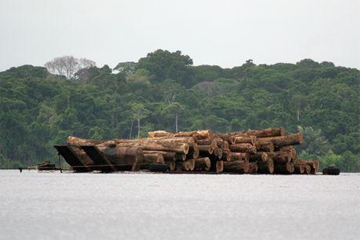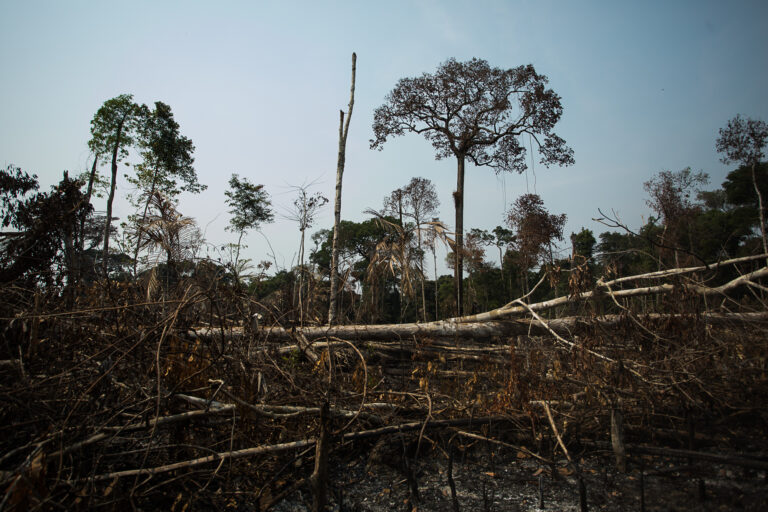Companies dealing in illegal timber may soon face stiff penalties under a proposed E.U. regulation.
The European Parliament voted Monday to impose penalties on companies who use or trade illegally sourced timber. National authorities will have the power to impound timber of illegal origin, fine companies, and even shut down particularly egregious violators. Penalties will be “at least five times the value of the timber products” under the proposal, which will be voted on in April at Parliament’s plenary session and then later by EU agriculture ministers.
The system will require operators to “provide basic information about the source of the products, their country and forest of origin,” according to a statement from the European Parliament. “They will also have to identify the operator who has supplied the timber and to whom it has been supplied, through a traceability system.”

|
“All operators in the supply chain should ‘share the responsibility for eliminating the risk of introducing illegally harvested timber and timber products’ to the EU market,” said Parliament which voted 54 to one in favor of the measure.
The regulations would include a classification scheme for “high-risk” timber or suppliers that require extra due diligence.
“Timber could be classified as high risk if, for example, it were from ‘countries where there is consistent and reliable information regarding significant failures of forest law governance’ or a ‘high level of corruption'”, said Parliament. “In such cases, operators will be subject to extra due diligence obligations.”
The environmental group Greenpeace welcomed the move.
“The European Parliament just sent the Commission and EU agriculture ministers a very clear signal: substantial improvements are required to transform this timber law into an effective and credible tool to fight illegal forest destruction,” said Sébastien Risso, Greenpeace EU forest policy director. “The Parliament committee has supported an EU law that makes the timber industry accountable and sets up an effective system to control the legal origin of wood. Members of the European Parliament have highlighted the urgent need for Europe to reduce its environmental and social footprint on the world’s forests.”
The E.U. estimates that 20 to 40 percent of global industrial wood production is from illegal sources.
The U.S. has enacted similar safeguards through a 2008 amendment of the Lacey Act, which holds U.S. companies to environmental laws in the countries from where they source plant and wildlife products.














